UCAT Preparation Course
Matrix UCAT Courses are designed to teach you the theory and exam techniques to acing the UCAT test.
Learning methods available
Select a year to see available courses
Are you ready for your half-yearly exams? Read on for Caitlyn's half-yearly study hacks.

Join 75,893 students who already have a head start.
"*" indicates required fields
Do you find yourself wondering, “How should I study for my half yearlies?” Well, in this article, Matrix Scholarship holder and Year 11 PLC student, Caitlyn, shares her hacks for prepping for half-yearly exams.
Name: Caitlyn Tan
School: Pymble Ladies’ College
Grade: 11, 2022
ATAR Goal: 99.95
University Goal: Doctor of Medicine, anywhere in NSW
Hi there! I’m Caitlyn. My hobbies include classical music, reading good books and problem-solving. If I’m not studying or practising my instruments, I love researching and reading more about our world, and trying to understand how stuff works.
As a Pymble student, I participate in a range of activities available at the College, including the extensive music program in the Orchestras, Athletics and Cross Country and science programs.
Year 11 has been interesting so far, and definitely a step up from Year 10. Firstly, there is much more independence in Year 11 which allows you to schedule and plan your study more freely so that you can maximise your time and marks.Who knew what a difference free period could make? Secondly, some of the exams and subjects become much more demanding, like Extension 1 Mathematics, which is a significant step up from the Stage 5 Mathematics as the questions often require you to problem solve at a higher level.
To get better, I’ve begun doing challenging practice past paper questions to really exercise my problem solving skills and develop strategies when tackling these problems.
As a student in the accelerated stream, I was given the opportunity to accelerate with a number of other select students. I took this opportunity because it allowed growth and extension – it also just sort of happened – we were all put in a class in Year 8 that began to accelerate.
Over the years, our class has become very close. We are able to learn more and allow us to have known the content longer than the rest of our cohort. We also get to have a practice HSC, so we can experiment with techniques that worked or didn’t work before sitting all our other Year 12 subjects next year. This also means that for Year 12, our class is able to spend more time on Mathematics Extension 2 and 1 content as we will have already covered Advanced content.
Since the advanced content is quite old for us, it can be difficult to regurgitate the information for an upcoming Year 11 Extension exam. Another downside is that because of acceleration, our class moves really fast and it can be hard to keep up with the pace of the content and getting all the concepts consolidated before the next class.
At Matrix, I have taken the Matrix + courses for Math ADV Term 3 during the 1st week of the holidays so have mostly finished learning the content for Math ADV.
During the week, I do at least one trial paper under exam conditions. After, I mark my paper I input my problematic areas into a table.
All corrections are put into a separate FAIL folder – a collection of problems I have done incorrectly.
I then review problematic areas throughout the week when I have scheduled Mathematics Advanced revision. This way, I can track my progress and see if there are any recurring mistakes. The table also helps me to structure my weekly revision, allowing me to save time during the week.
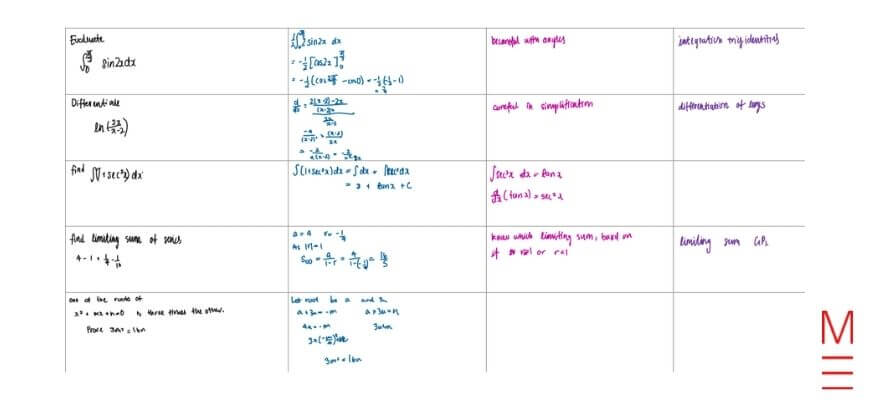
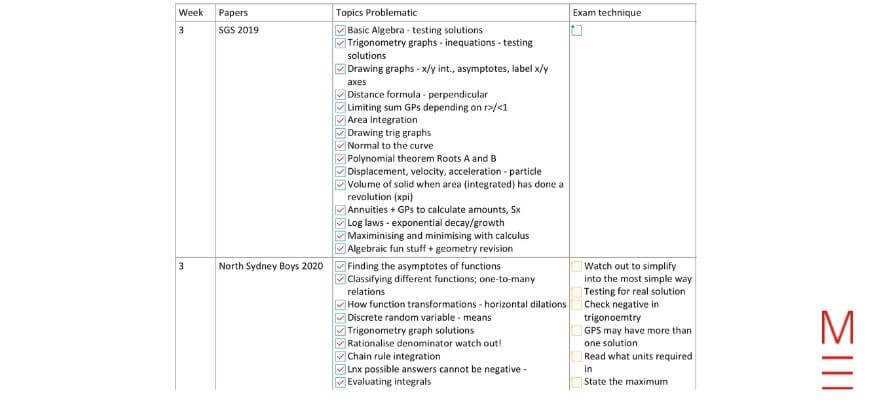
For exam preparation of Yearlies, I usually make notes, then do past papers. However, this year, I already sort of have my notes together so all I have to do is review them and do past papers. During my past papers, I am reviewing them slightly differently, making note of topic areas that are particularly weak and refining and polishing these areas during revision.
The resources I have gathered include past Matrix Workbooks, past papers, school-provided past papers, hard questions from the internet, and test questions I’ve come up with.
In terms of study, during a review session, I figure out what parts I don’t understand or have not fully memorised and isolate them first to find the inner details and workings. Then, I put it back into its context and then if it’s science or mathematics, apply the concept to a real-world situation.
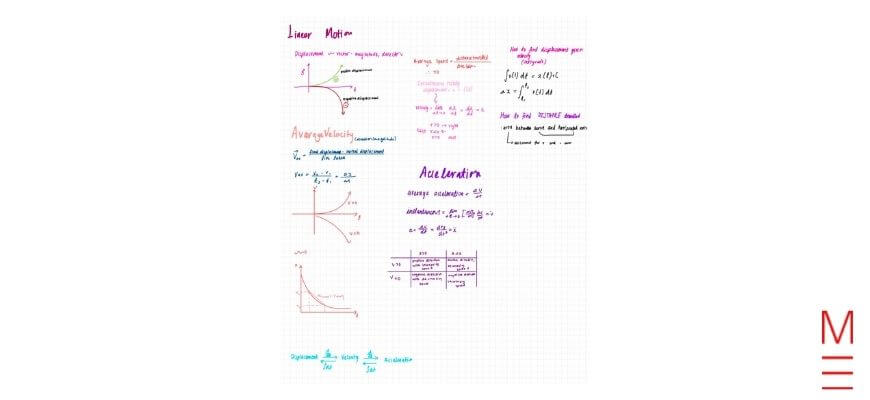
In the past, I’ve taken the Module 3 Chemistry and Physics Holiday courses. They really helped me for half-yearly assessments as the content at school moved much quicker due to the three-term year, as I was able to consolidate my knowledge rather than try and digest the information for the first time.
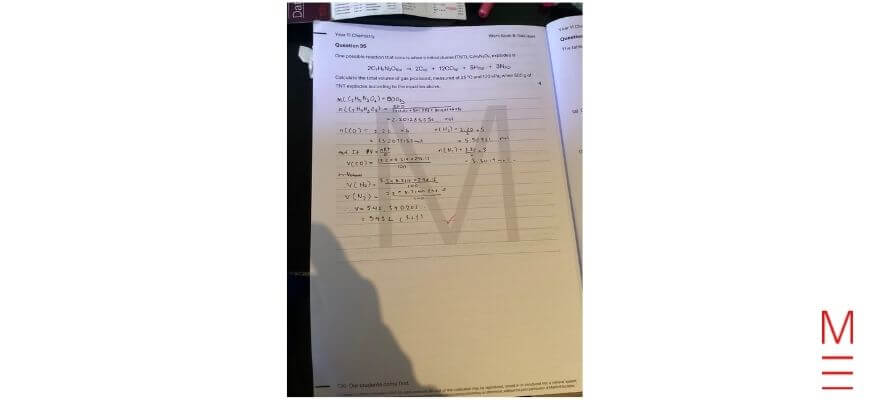
The challenges of the holiday courses means that information gets thrown at you quickly and you become swamped in homework – so keeping a positive, motivated attitude is key to getting the most benefit out of these courses. In the future, I am looking forward to taking the Module 4 Chemistry and Physics courses.
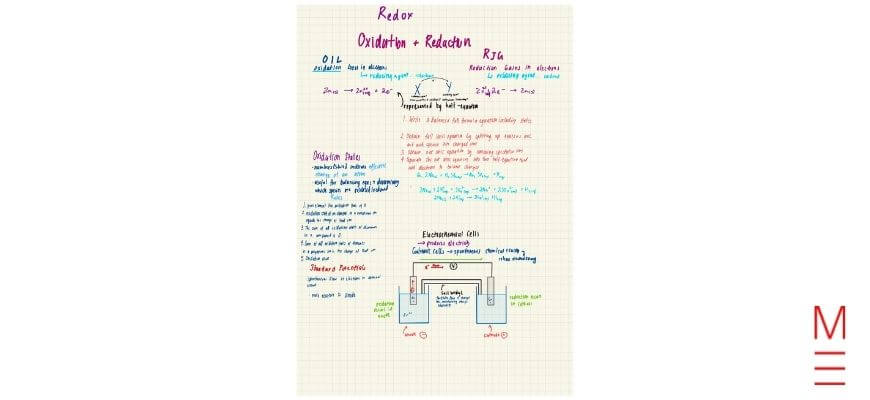
Getting started with assessments is essential so that you can maximise the time you do have to refine and grow your skills so that you are adequately prepared for the assessment. It can also mean that you have less work to do closer to the exam when other exams are also happening and prevent the notorious ‘cramming’ technique though efficient in the short-term is dangerous for long-term consolidation.
When you set a rhythm or plan, make sure that your plan is realistic and achievable. If it’s not, you have the danger of being inconsistent with your workload and while periods of productivity and idleness are normal, consistently setting goals for yourself outside of school can continue to help you grow and reach your fullest potential.
As you get into the crunch stages of Year 11, you’re going to have to start prioritising things – the truth is no one has the time to do everything. Figure out what’s important and what’s not, then delay the unimportant things that way you’ve done the things that really matter, not just the stuff that seems urgent.
Written by Guest Author
We have regular contributions to our blog from our Tutor Team and high performing Matrix Students. Come back regularly for these guest posts to learn their study hacks and insights!© Matrix Education and www.matrix.edu.au, 2023. Unauthorised use and/or duplication of this material without express and written permission from this site’s author and/or owner is strictly prohibited. Excerpts and links may be used, provided that full and clear credit is given to Matrix Education and www.matrix.edu.au with appropriate and specific direction to the original content.